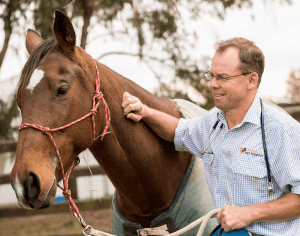
Being a veterinarian is far from easy, but it certainly can be one of the most rewarding vocations. Of course, some people are more suited to becoming a vet than others — just as not everyone who likes kids is cut out to be a teacher, not every animal lover is going to suit a career as a veterinarian. So, what three key qualities contribute to being a successful veterinarian?
1. Compassion and empathy
A successful veterinarian will be compassionate and show empathy, and not only towards their patients, but also to their human counterparts.
One of the hardest parts of working as a vet is dealing with animals that have a poor prognosis; in some situations, euthanasia is the kindest outcome. In this scenario, a vet not only needs to be able to treat the animal with compassion, but also to have the ability to deliver difficult news to clients in an empathetic way.
Another difficult scenario often faced by vets is one where a client may not have the resources to proceed with treatment that could save an animal’s life, leaving euthanasia as the only viable option. Being able to understand differing clients’ situations and supporting them through that decision making process is important. In some cases, it can conflict with a vet’s passion for animals and being able to cope with this conflict is far from easy, however the ability to be empathetic certainly helps.
2. A strong stomach
Whether it’s dealing with an infected wound, treating a dog with a stomach upset, or performing castration surgery, as amvet you will need to have a cast iron stomach; it’s certainly not a job for those with a tendency to feel squeamish. Being able to hold your nerve and maintain focus through treatment is essential to the health of the patient, and therefore you won’t be able to close your eyes if there’s a situation that is unpleasant!
3. A thirst to learn more
In the field of vet science, new research is forever bringing to light advancements in treatment. What was once common practice treating a particular ailment can change in the blink of an eye; as a vet if you don’t keep up to date you’re likely to find yourself falling behind. As a veterinarian, you must have a thirst to learn more; a curiosity to question, a yearning to expand your skillset, and a desire to better the way in which humans treat animals.
Learning comes in many forms, ranging from simply talking and sharing anecdotal evidence with colleagues, through to undertaking formal courses. These days, undertaking further education is more convenient and accessible than ever before thanks to online learning. VetPrac runs a wide range of courses and workshops that allow vets to up-skill in areas such as specific surgeries, the use of certain technologies, and even more general topics such as anaesthesia and pain management. These courses range from being completely online, through to a mix of virtual and practical components depending on the topic. You can find out more about upcoming VetPrac workshops here.
If you are compassionate, empathetic and have strong decision-making and problem solving abilities — as well as a desire to learn — then a career in veterinary science could be for you!
